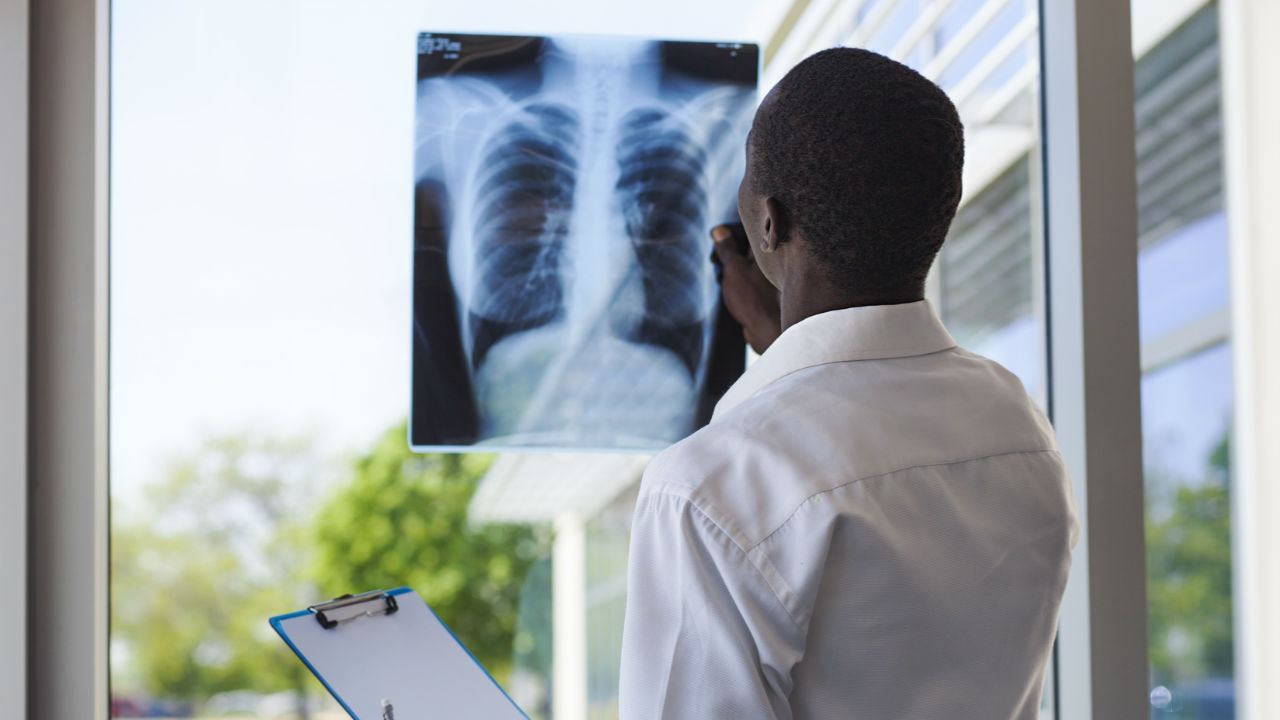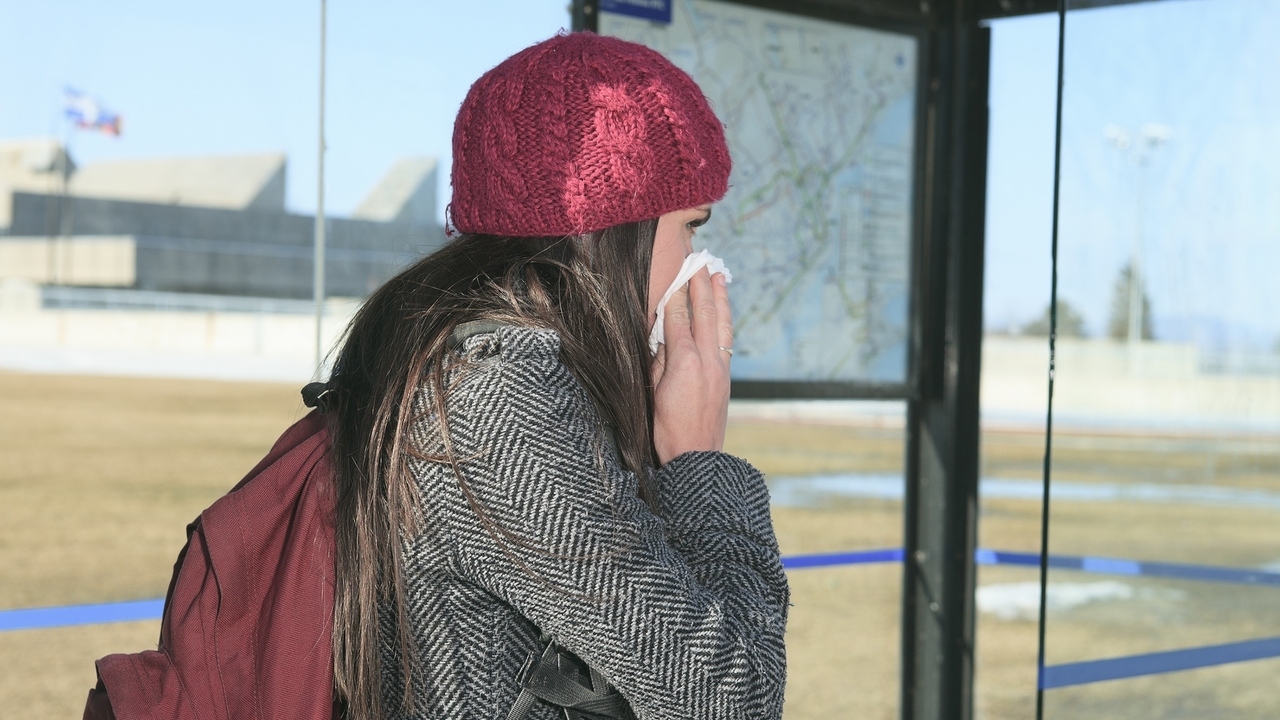If you have been diagnosed with pneumonia, you may wish to consider asking your physician some questions. But first, let's go over some basic information about the condition.
Pneumonia is essentially an inflammatory condition of the lungs where the alveoli (or tiny air sacs at the ends of bronchioles where exchange of gases takes place) are affected and filled with fluid. Pneumonia can be caused by virus, bacteria, fungus or parasites.
Details on aspiration pneumonia may be found at the following links:
• Aspiration Pneumonia: 6 More Questions You Should Be Asking Your Doctor - http://bit.ly/aTusm6
• Aspiration Pneumonia : http://bit.ly/dmIdlA
Details on atypical pneumonia may be had from the following links:
• Atypical Pneumonia: 4 Questions For Your Doctor – http://bit.ly/cxBR8q
• Atypical Pneumonia: 4 More Questions For Your Doctor - http://bit.ly/bWqEGK
Now, onto the questions:
1. My report diagnoses me with bacterial pneumonia. Could you explain what this is?
It is possible that you inhaled airborne droplets containing any of the various types of pneumonia bacteria, which found their way to your lung or lungs. Once in the lungs, the bacteria settle in the alveoli and in the intra-cellular spaces. Your immune system then springs into action and releases both neutrophils and cytokines. The neutrophils aim to wall-off the pneumococcal bacteria and kill them. However, the neutrophils, bacteria, and fluid from surrounding blood vessels fill the alveoli and inhibit the transportation of oxygen. The cytokines are proteins secreted by immune system cells that carry messages and signals between cells. Cytokine release triggers symptoms of fever, lethargy, etc.
Bacteria known to cause pneumonia are:
• Streptococcus pneumoniae
• Staphylococcus aureus
• Streptococcus agalactiae
• Haemophilus influenzae
• Klebsiella pneumoniae
• Escherichia coli
• Pseudomonas aeruginosa
• Moraxella catarrhalis
• Chlamydophila pneumoniae
• Mycoplasma pneumoniae
• Legionella pneumophila
2. Besides the cough and fever that I am experiencing, are there other symptoms I should watch out for?
Yes, it is possible that you will experience other symptoms similar to upper respiratory tract infections. They include:
• Labored breathing
• Chest pain
• High respiration and heart rate
• Cough with yellow or green sputum
• Headache
• Muscle and joint pain
• Chills
• Fatigue
• Loss of appetite
• Nausea and vomiting
• Cyanosis (blueness of skin) due to low oxygen in blood
• Unsteady movements
• Low blood pressure
• Confusion
3. How long will I take to recover?
Recovery time depends on the acuity and type of pneumonia you have apart from your medical history and line of treatment prescribed by the doctor for you. By and large it can take anytime from three to six weeks for your lungs to clear of the infection. However, your symptoms of cough may take longer to disappear. Older persons and asthmatics take longer to recover from pneumonic conditions.
4. What treatment will be prescribed for me and for how long?
Your treatment depends upon the type of pneumonia you are infected with and the severity of your condition. The duration of drug administration also depends upon the response of your system to the medication. It may be changed mid-way to suit the progress of recovery. It depends upon your doctor after regular checkups. Here is an outline of medicines that may be prescribed either alone or in combination, based on the cause of your pneumonia, location of infection, age and health history. Dosage, duration, timings, side-effects, allergies and hypersensitivities are to be checked with your doctor.
For bacterial Pneumonia, medicines can include:
• Amoxicillin
• Clavulanic Acid
• Vancomycin
• Penicillin
• Amicacillin
• Clarithromycin
• Azithromycin
• Doxycycline
• Cephalosporins
• Fluoroquinolones
• Aminoglycosides
With Viral Pneumonia, it can be caused by any of these viruses: respiratory syncytial virus, influenza virus, adenovirus, hantavirus, parainfluenza virus or cytomegalovirus. Any or a combination of any of the medicines mentioned below are prescribed in treating viral pneumonia:
• Oseltamivir
• Zanamivir
• Rimantadine
• Amantadine
• Rest and fluids
• Any other drug that may be prescribed to bring relief to symptoms.
Parasitical Pneumonia: Such cases of pneumonia are caused by parasites such as Ascariasis, Toxoplasma gondii and Strongyloides stercoralis. Medication could include any or a combination of any of the following drugs:
• Mebendazole
• Piperazine
• Pyrantel pamoate
• Thiabendazole
• Hexylresorcinol
• Santonin
• Corticosteroids
• Intravenous methylprednisolone
• Oral prednisone
• Inhaled steroids such as fluticasone
• Non-invasive machines such as a bilevel positive airway pressure
• Breathing tubes and ventilator
Fungal Pneumonia: This type of pneumonia is caused by any of the fungi - Histoplasma capsulatum, blastomyces, Cryptococcus neoformans, Pneumocystis jiroveci, and Coccidioides immitis. Medication could include any or a combination of any of the following drugs:
• Penicillin
• Sulfonamides
• Amphotericin B
• Fluconazole
• Ketoconazole
• Voriconazole
• Posaconazole
• Itraconazole
• NSAIDs like ibuprofen, Corticosteroids like prednisone, etc., are sometimes advised to manage symptomatic problems.
Idiopathic Pneumonia:
• Corticosteroids and cytotoxic drugs
• Lung rehabilitation
• Combination of prednisone with either cyclophosphamide or azathioprine over many months
• Anti-fibrotic agent Pirfenidone and Bosentan
• Antioxidant N-acetylcysteine
• Antiviral cytokines – Interferon Gamma and Interferon Beta
• Glucocorticoids
ALL INFORMATION GIVEN IN THIS ADVOCACY SHEET IS TO BE CHECKED WITH YOUR DOCTOR BEFORE IMPLEMENTING THEM OR TAKING THEM AS STANDARD OR VERIFIED.
Mamta Singh is a published author of the books Migraines for the Informed Woman (Publisher: Rupa & Co.) and the upcoming Rev Up Your Life! (Publisher: Hay House India). She is also a seasoned business, creative and academic writer. She is a certified fitness instructor, personal trainer & sports nutritionist through IFA, Florida USA. Mamta is an NCFE-certified Holistic Health Therapist SAC Dip U.K. She is the lead writer and holds Expert Author status in many well-received health, fitness and nutrition sites. She runs her own popular blogs on migraines in women and holistic health. Mamta holds a double Master's Degree in Commerce and Business. She is a registered practitioner with the UN recognised Art of Living Foundation. Link: http://www.migrainingjenny.wordpress.com and http://www.footstrike.wordpress.com






Add a Comment2 Comments
When comparing the bacterial-caused atypical pneumonias with these caused by real viruses (excluding bacteria that were wrongly considered as viruses), the term "atypical pneumonia" almost always implies a bacterial etiology and is contrasted with viral pneumonia.
May 24, 2014 - 8:50amThis Comment
When comparing the bacterial-caused atypical pneumonias with these caused by real viruses (excluding bacteria that were wrongly considered as viruses), the term "atypical pneumonia" almost always implies a bacterial etiology and is contrasted with viral pneumonia.
May 24, 2014 - 8:45amThis Comment